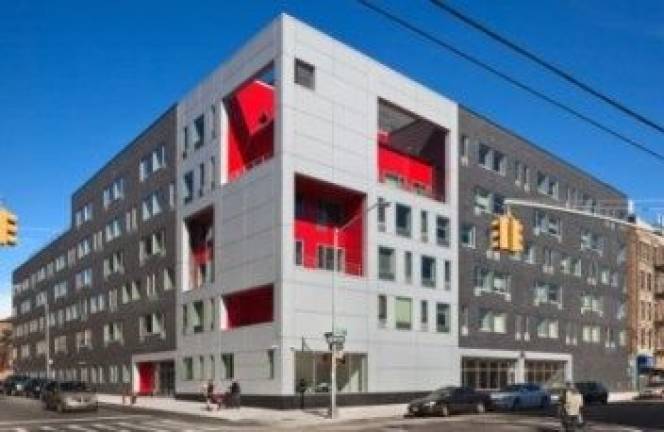Mountco: Year 5

By Edie Johnson
CHESTER — Five years after the county bought the former Camp LaGuardia homeless shelter, the site sits idle, like an abandoned tenement district. Buildings are unsalvagable, and the grounds are unkempt. Police have reported numerous instances of vandalism. If a person or business owned the site in Chester, they'd likely be given summonses and fines for creating unsightly and dangerous conditions.
Meanwhile, the county has given the most likely purchaser, Joel Mounty of Mountco Construction and Development Corp., extension after extension to close on the purchase. The price can't be narrowed down because the numbers keep changing. The Town of Chester objects to the housing project's high density, which does not comply with town code. At one point in the negotiations, Mountco proposed building 907 residential units on the 258-acre site. The numbers have jumped around over the years, from 907 to 807 to 714 to 634 apartments, along with some single-family residences.
A particularly thorny problem is getting sufficient water and sewer service to the site. The Harriman sewage treatment plant already gets about as much volume as it can handle.
The Town of Chester has kept pressure on to keep the number of units down. Mounty said he'd be willing to lower the number of units for a lower price.
The county paid New York City $8.5 million for Camp LaGuardia in 2007, feeling they had saved local residents from a wildly unpopular institution that had been around for nearly a century. The legislature also hoped to realize a quick profit, but instead has been "left holding the bag," as some legislators have put it.
Veteran, senior citizen, or affordable housing?
Blooming Grove Supervisor Frank Fornario and Chester Supervisor Steve Neuhaus want a greater portion of the 80 acres to will be developed devoted to commercial use and to housing for senior citizens and veterans.
Mounty says he'd be willing to compromise by increasing the commercial space component of the project only if commercial users express clear interest. He said he will seek state funding for the "affordable housing" portion of the project, funding that some residents fear will be paid for with their taxes. But Mounty vows it will be an attractive community around a village square, and not at all like "tract housing."
There also may be acreage given for use as a town hall or senior complex, he said.
The prevailing concern is not over what Mountco might do, but that the company's actual experience to date is in big block apartment buildings. The county's own comprehensive plan promised to set up local councils with residents as members to develop smart affordable housing plans, but the promises never materialized.
Neuhaus believes a larger portion of the development could serve as a tax benefit if good commercial buyers or lessors can be found. He applied for a grant from the Mid Hudson Economic Development Council, which has doled out $750 million in incentives throughout the region for 22 projects. but only one of the projects, located in Yonkers, was a housing project. Neuhaus had hoped the grant money could help develop infrastructure to make the property more appealing and ready to develop.
Town lawyers continue negotiating developer's agreement
Fornario and Neuhaus and their planning boards still hold many of the keys, including sewage capacity, limits on the number of housing units, and site-specific zoning.
Attorneys for both towns and the developer are negotiating a "developer's agreement." While Mountco wants a more generic scope, with "floating zoning" that would allow more houses and more commercial space if sales are good, but the towns do not want to give up too much control.
Mounty promises that the developer's agreement will be more of a guideline and "not binding."
But Fornario said, "If they want a developer's agreement, they will give us the details."